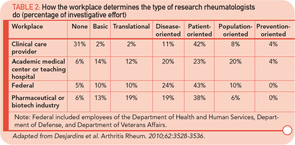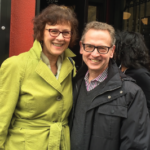Dr. Siegel says that he spends quite a bit of time working with colleagues on the commercial side of the company. “I translate medical science for the commercial people,” he says. “They need to understand concepts that make sense clinically, like needing better efficacy, less disability, and lower steroid doses for RA patients and better disease control and prevention of long-term organ damage in lupus patients,” he says, adding that this is one of the most satisfying aspects of his work at Genentech.

The Transition
“I’m interested in science and in helping patients, so when I made the change to industry, I was concerned. Would it all be about commercial interests?” says Dr. Siegel. He quickly realized that the major part of his role at Genentech would involve science and patients.
“But there’s a business side, too,” he adds. “It’s a company, and it needs to justify its investments. We ask questions. Is there an unmet medical need? Will our product work? Is it safe?” These are all issues he and his colleagues must present to a governance committee to show that a particular investment makes good business sense.
Building the business case for a molecule was new to Dr. Siegel. “I had to learn that piece, but it was really looking at a different side of the same questions I’d always examined,” he says. “I was very humbled” but not adrift, he says. “We have great people at Roche and Genentech who are available to help.”
Dr. Siegel notes that at first he was concerned that his colleagues would look askance at his decision to go to industry. “They said my leaving the FDA would be a big loss, and that meant a lot to me. And I could tell they respected Genentech. I think they see the positive role that I can play here,” he adds.
Not all transitions to industry are this seamless. Dr. Davis reports that the initial experience was a bit like “drinking from a fire hose.” He says that his relationships with some of his academic colleagues changed. “With some people there’s a distrust or lack of respect for those working in drug development in industry,” he continues. Some of these bad feelings have faded a bit with time, and he maintains contact with his colleagues because of his continuing work at UCSF. “I left because the work I do has more potential to find new and better therapeutics for patients,” Dr. Davis says.

